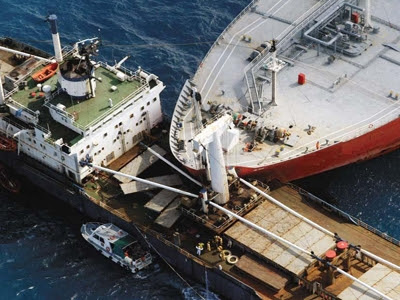THE ART OF AVOIDING COLLISION. BY- David Patraiko;FNI Director of Projects, The Nautical Institute
Two facts spring to mind. Firstly, some reports claim that as many as 60% of collisions happen when either one or both ships don’t even see each other until it is too late to avoid colliding (often in fine weather). Secondly, it is fair to say that a collision at sea can ruin your whole day! Our industry expects our shipboard Navigators to avoid all collisions, 100% of the time throughout their entire careers – often making such critical manoeuvres alone without the support of other officers checking their decisions. This is a big ask. Professionalism in the task of avoiding collisions is essential. It is critical to stay alert and focused at all times; and it is crucial to know how to keep a proper lookout by all appropriate means (Rule 5) and to determine if risk of collision exists (Rule 7). These ‘means’ consist of many traditional techniques, not least of which is the use of sight and hearing, but also many modern tools, such as ARPA and AIS. Ships often sail close to navigational hazards and in congested waters. These waters are due to grow ever more congested as seaborne trade increase, and water space diminishes. The former resulting from a recovering economy and environmental / political pleasure to shift goods by sea rather than road; the latter due to competition from issues such as offshore energy installations, aquaculture and environmental restrictions. In this second edition of The Navigator we will explore some of the common causes of collisions and the lessons we can learn from them. We will examine how traditional techniques, such as visual bearings, can be used alongside modern techniques, such as target association – and how both are needed to make the best decisions. Many of these techniques can be taught in classrooms and practiced in simulators, however they must be refined at sea, by practice and by sharing skills and ideas for collision avoidance with fellow officers. Don’t let your day be ruined. Stay alert, use all your senses, take pride in your professionalism – and share this edition of The Navigator with others, it’s free for anyone wishing to learn.
Shipboard navigators are expected to avoid all collisions, 100% of the time








Good
ReplyDelete